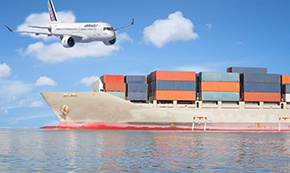All categories >
Effective November 10! U.S. lowers tariffs on China—details released!
Categories:
News
News Center
Time of issue:
2025-11-07 16:47
Views:
The economic and trade teams of China and the United States reached several consensus outcomes during their consultations in Kuala Lumpur. So, according to this consensus, how exactly will tariffs between the two countries be adjusted going forward?
Starting November 10, 2025, the United States will reduce the tariffs previously imposed on Chinese products—introduced to curb the flow of fentanyl—by lowering the overall tariff rate by 10 percentage points. Meanwhile, the suspension of "additional reciprocal tariffs" on Chinese goods will remain in place until November 10, 2026. (Currently, the 10% reciprocal tariff will continue to apply during this suspension period.)
Additionally, on October 31, 2025, Trump stated during a media interview aboard Air Force One that he “We’re happy” to further reduce tariffs on China by another 10%. Trump means he is willing to eliminate the remaining 10% "fentanyl tariff."
The U.S. has not adjusted its Section 301 tariffs on China and continues to impose the additional duties as before.
Some companies, upon seeing the term "301," mistakenly believe that the U.S. has suspended its Section 301 tariffs—or even that China has paused its retaliatory measures against those same tariffs. They’ve wrongly assumed that our country’s decision to temporarily halt countermeasures on U.S. maritime-related Section 301 taxes means the broader retaliation against U.S. tariffs has been canceled altogether. As a result, they think there’s no longer any need to apply for market-based procurement exclusions from U.S. tariffs—yet this is an entirely incorrect interpretation.
This adjustment regarding the Section 301 investigation actually refers to the U.S. decision to temporarily suspend, for one year, the maritime vessel-related Section 301 tariff measures imposed on China. Notably, this Section 301 investigation is entirely distinct from the ones targeting goods and merchandise that have been in place since 2018.
Similarly, China's corresponding adjustment—suspending its countermeasures against the U.S. 301 maritime investigation for one year—is not a suspension of the retaliatory 301 tariffs on goods. Instead, it involves pausing the Ministry of Transport's measure to impose special port fees on U.S.-flagged vessels. This action specifically targets ocean-going ships and has no direct connection to tariffs.
Therefore, if companies wish to import goods originating from the United States that are listed under the Section 301 retaliatory tariffs, they still need to apply for a U.S. market-based procurement exclusion number in order to qualify for exemption from these retaliatory tariffs. The application website is https://gszx.mof.gov.cn/.
The U.S.'s various Section 232 tariffs are imposed on countries and regions worldwide, and this time no adjustments will be made— they will remain in effect as before.
China will adjust some of its previous countermeasures against U.S. tariffs on fentanyl. It is expected that the additional 10% tariffs imposed on certain goods under Tax Committee Announcements No. 1 and No. 2 of 2025 will be lifted, aligning with the U.S.'s decision to reduce its own fentanyl tariffs by 10%. Specific details have not yet been finalized and will be officially announced later by the Tariff Department of the Ministry of Finance.
China's countermeasures against the U.S. 301 tariffs remain unchanged and are still being implemented as usual.

The outcomes of the talks included some rather interesting points—for instance, China specifically emphasized that it would only suspend its own measures imposing fees on U.S.-flagged vessels "after the U.S. side halts its Section 301 investigation measures targeting the maritime logistics and shipbuilding industries." Implicitly, this means that if the U.S. fails to stop implementing the Section 301 investigation measures, China, too, will not cease its own actions.
There are also cautious aspects, for instance: While China mentioned suspending the export control measures on rare earths, hard materials, and other products—originally announced on October 9, 2025—for one year, it emphasized that detailed plans are still under study. In other words, it may not mean an outright halt all at once.
It is worth noting that other Chinese export control measures not mentioned in the outcomes of the talks remain in effect, such as: "Announcement No. 28 of 2025 by the Ministry of Commerce and the Ministry of Science and Technology on Adjusting and Releasing the 'Catalogue of Technologies Whose Export Is Prohibited or Restricted in China'" and "Announcement No. 18 of 2025 by the Ministry of Commerce and the General Administration of Customs announcing the Decision to Implement Export Controls on Certain Medium- and Heavy-Rare Earth-Related Items."
The green section in the table indicates what needs to be adjusted, while the rest will remain unchanged:
China's exports to the United States:

Imports from the United States to China:

Note: The information above is for reference only; please refer to the official, final release for accurate details.
An industry consultant who previously managed logistics for two nationwide retail companies noted: "If it's needed right now, we’ll place the order. But in the long run, retailers are still waiting and watching—uncertainty remains."
Outdoor gear importer Revelyst "It was announced that, following the agreement, some air shipments originally scheduled to depart on November 1 have been switched to ocean freight to cut costs. 'This will save us a significant amount of money,' said the company's Senior Logistics Manager."
John Pace Say.
The recently announced U.S.-China trade agreement is expected to In the short term, this has prompted some U.S. retailers to accelerate their import pace to meet immediate demand. However, given that the agreement is valid for only one year, industry insiders believe this temporary arrangement will hardly provide importers with long-term confidence, and supply chain strategies will therefore remain cautious.
Shenzhen Huijetong International Freight Forwarding Co., Ltd. – Professional U.S. Route Shipping Services
In the U.S.-line shipping sector, Shenzhen Huijetong International Freight Forwarding Co., Ltd. has become a trusted choice for numerous clients, thanks to its professional services and extensive experience. Specializing in U.S.-line transportation, Huijetong offers comprehensive logistics solutions, including sea freight, air freight, land transportation, and warehousing services. The company maintains close partnerships with major shipping alliances, enabling it to provide flexible cargo arrangements and highly efficient transportation services tailored to customer needs.
Choosing Hujiatong International Freight Forwarding Co., Ltd. means choosing professional, efficient, and reliable logistics services. For more details, please visit [Hujiatong’s official website www.szvif.com].
Choose Huijetong when you travel to the U.S.!
Shenzhen Huijetong International Freight Forwarding Co., Ltd.—your professional U.S. East Coast shipping partner.
Service Hotline: 13560787209

WeChat QR Code
Keywords:
China-U.S. Trade,U.S. Tariffs










